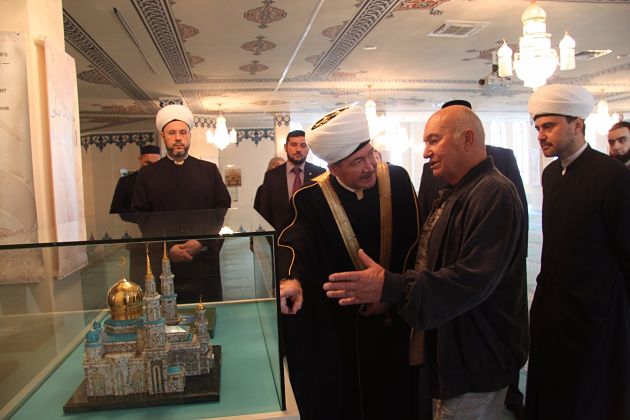The Voice of Islam is not the kind of media that pampers Russian government officials with kind words. However, today is a case where an exception can be made to this rule, because, as the saying goes, everything is understood through comparison. Not being able to withstand the operation (according to the official version…) in 1984, the former mayor of Moscow Yuri Luzhkov died today. The people of Moscow had different opinions about him as the mayor of the city, but his stance as a Russian politician was undeniable – let’s remember that he was a “Crimean nationalist” long before Vladimir Putin came to power.
However, Luzhkov’s stance on Islam and Muslims stood out favorably compared to the current mayor of Moscow, Sergei Sobyanin, and the approach that became dominant in Russian politics in the mid-Putin era, when Luzhkov was forced to step down. Luzhkov had repeatedly made statements about the importance of treating Orthodoxy and Islam equally in Russia, and had publicly visited mosques and various Islamic events. It was under Luzhkov’s leadership that the Council of Muftis of Russia had its “golden age” in Moscow. Moreover, the mayor of Moscow had good relations not only with his religious leader, Ravil Gainutdin, but also with Abdulvakhid Niyazov, who openly tried to create political parties with an Islamic orientation in Russian politics. Perhaps Luzhkov’s role in this was influenced by his attempts to maintain alliance relations with other regional leaders, which at that time included many charismatic leaders of Muslim regions, such as Mintimer Shaimiev, Ruslan Aushev, Murtaza Rakhimov, and others.
It was Luzhkov who, in 2005, placed a time capsule in the building under construction of the Moscow Cathedral Mosque and, speaking at one of the Islamic events, described his work on building mosques in the city as “we are here, in Moscow, waging jihad.
Of course, we should not be naive – during Luzhkov’s long tenure, he did much less for the city’s Muslims than he could have, and talked more than he acted. But at least he talked about it and created a certain public atmosphere. His successor, Sergei Sobyanin, has begun to openly say that Moscow does not need new mosques, and his officials have sharply and rather rudely rebutted objections from Muslim activists.
Overall, it should be noted that public attitudes toward Muslims in Moscow have changed during Sobyanin’s administration compared to the Luzhkov era, just as they have changed in the country under Putin compared to the previous era. Under Luzhkov and Yeltsin, Patriarch Alexy and Mufti Gainutdin were somewhat, if not completely, balanced figures. However, starting with the rise of Patriarch Kirill in the Russian Orthodox Church, under Sobyanin and the late Putin, there is no talk of equality – there is a de facto dominant religion and church, and there are tolerant (or intolerant in some regions or for some of its subgroups).
So remembering those times with kind words can at least allow us to compare them with the present and reflect on what we want and what we don’t want.

